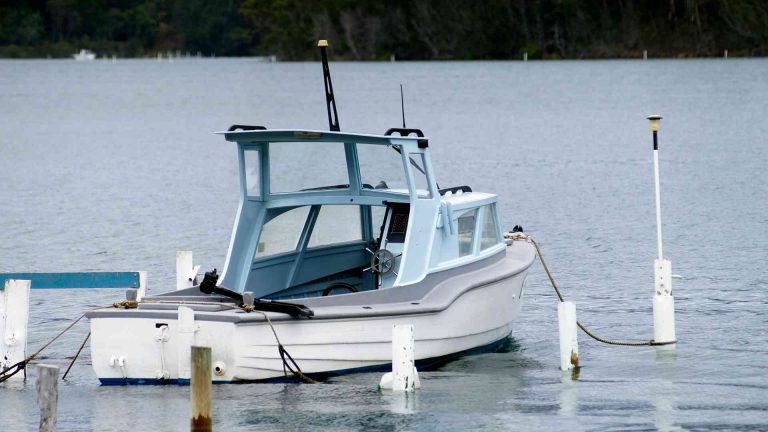What States Require a Boating License?
Discover which U.S. states require a boating license, how to obtain one, and why boater safety education is crucial for safe boating.
Boating offers an unparalleled way to enjoy the open water, whether you’re cruising on a serene lake or navigating coastal waves. However, operating a boat comes with responsibilities, and one of the most critical is ensuring compliance with state-specific boating license requirements. These regulations promote safety, protect the environment, and reduce risks for everyone on the water. This comprehensive guide explores which U.S. states mandate a boating license, the process for obtaining one, associated costs, exemptions, and tips for safe boating. Whether you’re a seasoned boater or a newcomer, understanding these requirements is essential for legal and responsible operation.
Why Boating Licenses Matter
Boating licenses, often referred to as boating safety certificates, are more than just legal requirements—they are a cornerstone of safe and responsible boating. These certifications ensure that operators understand navigation rules, state-specific regulations, safety protocols, and environmental considerations. By requiring licenses, states aim to minimize accidents, protect marine ecosystems, and enhance the boating experience for all.
A boating license demonstrates that an operator has completed a certified safety course covering essential topics such as:
- Navigation Rules: Understanding right-of-way, buoy systems, and waterway markers.
- Safety Equipment: Proper use of life jackets, fire extinguishers, and distress signals.
- State Regulations: Compliance with local laws, including speed limits and restricted areas.
- Environmental Awareness: Protecting wildlife and preventing pollution in waterways.
Operating a boat without a required license can lead to fines, penalties, or even vessel impoundment. Additionally, some insurance providers offer discounts to licensed boaters, recognizing their commitment to safety. Carrying a valid license or certificate while boating is not just a legal obligation but a practical step toward safer waterways.
Boating License Requirements by State
Boating license requirements vary significantly across the United States. Some states mandate licenses for all operators, while others apply restrictions based on age, vessel type, or horsepower. Below is a detailed breakdown of current boating license requirements for each state, focusing on motorized vessels and personal watercraft (PWC) such as Jet Skis or WaveRunners.
| State | Boating License Requirements |
|---|---|
| Alabama | Required for anyone 12+ years old. Operators 12–13 must be supervised by a licensed adult 21+. |
| Alaska | Not required, but safety education is recommended. |
| Arizona | Not required, but safety education is recommended. |
| Arkansas | Required for those born after Jan. 1, 1986, operating vessels with 10+ hp. |
| California | Required for all operators of motorized vessels (California Boater Card). |
| Colorado | Required for ages 14–17 operating motorized vessels. |
| Connecticut | Required for residents or property owners operating motorized vessels. |
| Delaware | Required for those born after Dec. 31, 1977. |
| District of Columbia | Required for all operators of motorized vessels. |
| Florida | Required for those born after Jan. 1, 1988, operating vessels with 10+ hp. |
| Georgia | Required for those born after Jan. 1, 1998. |
| Hawaii | Required for all operators, regardless of age. |
| Idaho | Not required, but safety education is recommended. |
| Illinois | Required for those born after Jan. 1, 1998. |
| Indiana | Required for 15-year-olds (with valid ID) or those with a driver’s license. |
| Iowa | Required for ages 12–17 operating vessels with 10+ hp. |
| Kansas | Required for those born after Jan. 1, 1989, or under 21. |
| Kentucky | Required for ages 12–17. |
| Louisiana | Required for those born after Jan. 1, 1984, operating vessels with 10+ hp or PWC. |
| Maine | Required for those born after Jan. 1, 1999, operating vessels with 25+ hp or PWC. |
| Maryland | Required for those born after July 1, 1972. |
| Massachusetts | Required for those born after Jan. 1, 1989 (by April 2026) or Jan. 1, 1989 (by April 2028). |
| Michigan | Required for those born after June 30, 1996. |
| Minnesota | Required for those 21 and younger, or born after July 1, 2004, operating motorized vessels. |
| Mississippi | Required for those born after June 30, 1980. |
| Missouri | Required for those born after Jan. 1, 1984. |
| Montana | Required for ages 13–14 operating vessels with 10+ hp. |
| Nebraska | Required for those born after Dec. 31, 1985. |
| Nevada | Required for those born after Jan. 1, 1983, operating vessels with 15+ hp. |
| New Hampshire | Required for those 16+ operating vessels with 25+ hp. |
| New Jersey | Required for all operators, regardless of age. |
| New Mexico | Required for those born after Jan. 1, 1989. |
| New York | Required for all operators of motorized vessels. |
| North Carolina | Required for those born after Jan. 1, 1988. |
| North Dakota | Required for ages 12–15 operating motorized vessels. |
| Ohio | Required for those born after Jan. 1, 1982, operating vessels with 10+ hp. |
| Oklahoma | Required for ages 12–15 operating vessels with 10+ hp or sailboats 16+ feet. |
| Oregon | Required for all operators of vessels with 10+ hp. |
| Pennsylvania | Required for those born after Jan. 1, 1982, operating vessels with 25+ hp or PWC. |
| Rhode Island | Required for those born after Jan. 1, 1986, operating vessels with 10+ hp or PWC. |
| South Carolina | Required for those born after July 1, 2007, operating vessels with 15+ hp unsupervised. |
| South Dakota | Not required, but safety education is recommended. |
| Tennessee | Required for residents born after Jan. 1, 1989. |
| Texas | Required for those born after Sept. 1, 1993, operating vessels with 15+ hp or windblown vessels 14+ feet. |
| Utah | Required for PWC operators ages 12–17. |
| Vermont | Required for those born after Jan. 1, 1974. |
| Virginia | Required for ages 14+ operating PWC or vessels with 10+ hp. |
| Washington | Required for all operators of vessels with 15+ hp. |
| West Virginia | Required for those born after Dec. 31, 1986. |
| Wisconsin | Required for those born after Jan. 1, 1989, and at least 12 years old. |
| Wyoming | Not required, but safety education is recommended. |
Key Observations
- Strict Requirements: States like California, Hawaii, New Jersey, New York, and the District of Columbia require licenses for all operators of motorized vessels, regardless of age.
- Age-Based Restrictions: Many states, such as Florida, Georgia, and Texas, require licenses for operators born after a specific date (e.g., Jan. 1, 1988, for Florida).
- Horsepower Thresholds: States like Nevada, Ohio, and Oregon tie licensing requirements to vessels with a minimum horsepower (e.g., 10 or 15 hp).
- No License Required: Alaska, Arizona, Idaho, South Dakota, and Wyoming do not mandate licenses but strongly encourage safety education.
Always verify requirements with your state’s boating authority, as regulations can change. The National Association of State Boating Law Administrators (NASBLA) provides a reliable resource for up-to-date information.
How to Obtain a Boating License
The process for obtaining a boating license is straightforward but varies by state. Below is a general guide, with Alabama as a case study to illustrate specific requirements.
General Steps
- Research State Requirements: Visit your state’s boating agency website or NASBLA for details on age, vessel type, and course requirements.
- Enroll in a Boating Safety Course: Options include:
- In-Person Courses: Offered by state agencies, U.S. Coast Guard Auxiliary, or United States Power Squadrons.
- Online Courses: Providers like Boat-Ed.com and BoaterExam.com offer NASBLA-approved courses for most states.
- Free Courses: The BoatUS Foundation provides free courses for 35 states.
- Complete the Course: Courses typically take 3–8 hours and cover navigation, safety, and state-specific regulations. Online courses allow you to progress at your own pace.
- Pass the Exam: Most courses conclude with a written or online exam testing your knowledge of boating safety and regulations.
- Obtain Your Certificate: Upon passing, you’ll receive a boating safety certificate or card, which must be carried while operating a vessel.
- Pay Fees: Costs vary by state and provider:
- Online course fees: $29–$50 (BoatUS Foundation courses are free in some states).
- State administrative fees: $5–$36.25 (e.g., Alabama charges a $5 application fee and $36.25 issuance fee).
Case Study: Alabama Boating License Process
In Alabama, the process is well-defined:
- Eligibility: Operators must be 12+ years old. Those 12–13 require supervision by a licensed adult 21+.
- Application: Visit a Department of Public Safety Driver’s License Examining Office in your county.
- Requirements:
- Pay a $5 application fee (cash) and a $36.25 issuance fee.
- Answer medical questions.
- Provide proof of age (certified birth certificate, Social Security card, and a school superintendent’s statement for minors).
- Pass a written or oral exam or provide proof of exemption (e.g., completion of a NASBLA-approved course).
- Certification: The “V” class is added to your driver’s license, and you must carry it while boating.
- Duplicates: If lost, a duplicate certificate costs $5, payable by certified check or money order to the Alabama Marine Patrol.
Exemptions
Many states offer exemptions from exam requirements, such as:
- Holding a valid U.S. Coast Guard Motorboat Operator’s License.
- Completing a NASBLA-approved course (e.g., Boat Alabama, U.S. Power Squadron, or online courses).
- Being born before a specific date (e.g., April 28, 1954, in Alabama).
Always present exemption documentation when applying for a license.
Boating License Costs
Costs for obtaining a boating license vary by state and course provider. Below is a table summarizing typical expenses:
| Expense Type | Cost Range | Details |
|---|---|---|
| Online Course Fee | $29–$50 (Free in some states) | Charged by providers like Boat-Ed.com; BoatUS Foundation offers free courses. |
| State Application Fee | $5–$36.25 | Varies by state (e.g., Alabama: $5 application, $36.25 issuance). |
| Duplicate Certificate | $5 | For lost certificates (e.g., Alabama requires payment by certified check). |
| In-Person Course | $0–$50 | Some states offer free in-person courses; others charge a nominal fee. |
Special Considerations: Vessel Size and Captain’s License
A common question among boaters is whether a standard boating safety certificate is sufficient for operating larger vessels, such as those over 26 feet. The confusion often stems from U.S. Coast Guard (USCG) regulations for commercial operators.
Personal Vessels
For personal, non-commercial use, a state-issued boating safety certificate is typically sufficient, regardless of vessel length. For example:
- In Florida, a Boating Safety Education Identification Card is required for those born after Jan. 1, 1988, operating vessels with 10+ hp, with no length restrictions.
- Alabama’s vessel operator’s license applies to all motorized vessels, with no mention of length-based requirements.
USCG Captain’s License
A USCG Captain’s License (e.g., Operator of Uninspected Passenger Vessel or Master License) is required for:
- Operating a vessel for hire (e.g., charters or commercial fishing).
- Carrying paying passengers, regardless of vessel size.
For a 36-foot recreational boat used for personal purposes (e.g., with friends), a state boating safety certificate is generally sufficient, provided you meet the state’s age and education requirements. Always check state-specific regulations to confirm.
Flowchart: Do You Need a Captain’s License?
Below is a flowchart to clarify when a USCG Captain’s License is required:

Nonresident Boating Requirements
Nonresidents must comply with the boating regulations of the state where they operate a vessel. For example:
- Alabama: Nonresidents need a valid boater safety certification from their home state or country or an Alabama Nonresident Boater Safety Certification.
- Florida: Nonresidents born after Jan. 1, 1988, must carry a NASBLA-approved certificate and photo ID or obtain a temporary certificate valid for 90 days.
Some states honor out-of-state certifications, while others require nonresidents to complete a state-specific course. Check with the state’s boating authority before operating a vessel.
Tips for Boating License Success
To streamline the licensing process and ensure safe boating:
- Start Early: Complete your course before peak boating season to avoid delays.
- Choose NASBLA-Approved Courses: Ensure your course meets state requirements.
- Practice with Experienced Boaters: Gain hands-on experience under supervision.
- Carry Your Certificate: Always have your license or certificate on board to present during inspections.
- Stay Updated: Regulations can change, so check your state’s boating agency website periodically.
FAQs About Boating Licenses
Do I need a boating license to operate a boat?
How much does a boating license cost?
Do boating licenses expire?
Do I need a separate license for each state?
Can I operate a 26+ foot boat with a boating safety certificate?
Conclusion
Boating is a rewarding activity, but it comes with the responsibility of adhering to state-specific licensing requirements. Whether you’re navigating the lakes of Wisconsin or the coasts of Florida, obtaining a boating safety certificate ensures you’re equipped with the knowledge to operate your vessel safely and legally. By understanding your state’s regulations, completing a NASBLA-approved course, and carrying your certificate, you’ll contribute to safer waterways and a more enjoyable boating experience. Start your boating education today to be ready for your next adventure on the water.
Share What States Require a Boating License? with your friends and Leave a comment below with your thoughts.
Read 8 Strategies for Optimizing Storage Space on a Smaller Boat until we meet in the next article.






